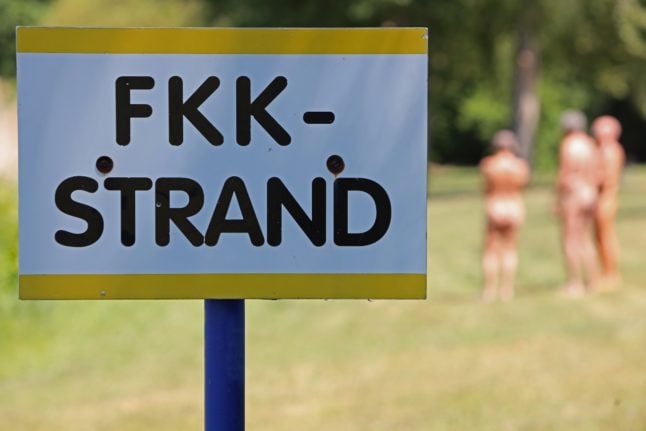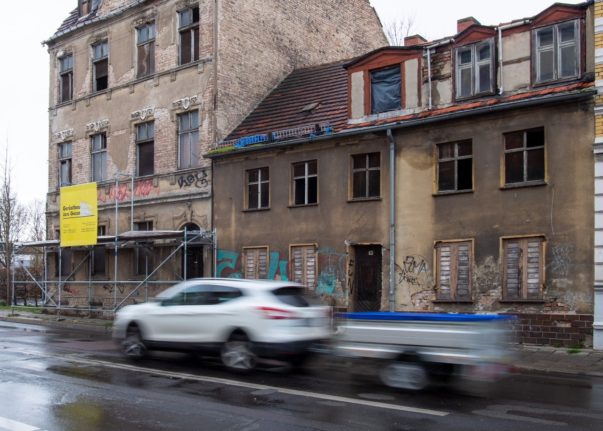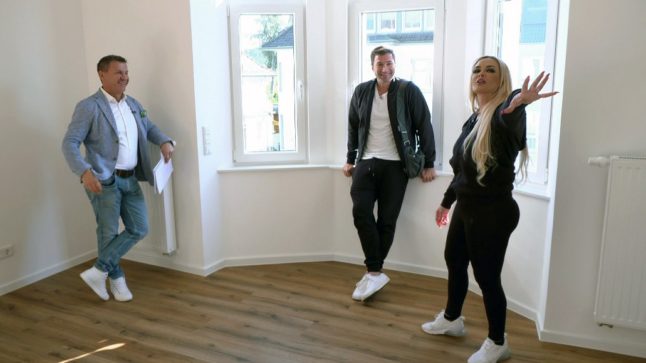Just like death and taxes, moving to a new apartment is one of the inevitabilities of life. You think you’re settled in for the long-haul, and then your landlord sends you a letter to say they’re hiking the rent, or your flatmate reveals they’re heading off on a round-the-world tour.
In Germany’s current housing crisis, a bombshell like this is more than a minor inconvenience. It means endless scrolls through ImmoScout24 and wg-gesucht, turning up to flat viewings alongside 40 other people, and sending more than a few desperate texts to friends with an obviously false air of nonchalance: “Hey, anyone know of any flats going in Munich?… Anyone?”
Having once held the grandiose title of Hauptmieter(-in), the wheels of fate have tossed you back into the depths of online property portals along with the other flat-hunters.
Now, all that’s left is to reapply for your Schufa, hope that your credit hasn’t taken too much of a hit from that huge Kaution (deposit) you paid, and get back on the hamster wheel that is flat-hunting.
Along the way, keep an eye out for some of each of these classic genres of German rental advert.
1. The Studio for €2,000
Having once been a speciality of sub-letters trying their luck on Facebook, this genre of housing advert has recently moved into the mainstream.
You may be reeled in by some attractive pictures of a well-presented studio, a nice location in the centre of town, and the promise of a secure, long-term rental contract. Of course, it is only 35 square metres, but who can be fussy in today’s market? And besides, the advert describes it as “cosy”, and you’re sure to save a bit of money on heating.
But as you talk yourself round, your eye catches sight of the price hovering at the bottom of the advert: it’s €2,000 per month warm. Well, look on the bright side: at least the CEO of a Fortune 500 company will enjoy making this their forever home.
2. The Obvious Scam
In today’s housing market, there’s a helpful rule of thumb: if it sounds too good to be true, it probably is.
This is especially the case if the apartment photos still have a “stock image” watermark attached to them, and the advert spends most of the time explaining why the person renting the flat will be out of town on urgent business for quite some time.
In a state of desperation, you may even consider sending that scan of your passport, credit card and Aufenthaltstitel to the dodgy-looking email address – after all, they say the flat is guaranteed to the first person who does that.
But even in these tumultuous times, engaging with scammers just isn’t worth it. We recommend you ignore the advert and simply scroll on by.
3. The Vegan Nudists Only
When it comes to choosing flatmates, it’s important to find the right fit – which is why there’s no shortage of adverts on wg-gesucht banning cheese and clothing within a 50-metre radius of the property.
If the apartment is nice enough (and cheap enough), you might even consider committing yourself to a Döner-free existence and even joining your new housemates for their naked sun-saluations at 6am.
Or you may decide that even homelessness is more alluring than a complete personality overhaul.

4. The No Anmeldung Possible
Who cares if you can’t get a visa or open a bank account without it? If it would inconvenience the sub-letter who’s kindly charging you double the rent they pay, you are strictly forbidden from heading to the Bürgeramt to register your presence in the property.
In the wild, you’ll most likely see the phrase “No Anmeldung Possible” at the bottom of a long and flowery description of a room on a Facebook flat-rentals group or wg-gesucht. It can usually be found alongside its favourite companion: the utterly absurd move-in and move-out dates, which are usually around the middle of the month.
Is there any clearer way to say, “I just want someone to fund my travels in India for a few months”? We don’t think so.
READ ALSO: Six confusing things about renting a flat in Germany
5. The Creepy Dude Flat
This one can sometimes fall under the “too good to be true” rule (free room anyone?) or, in the best-case scenario, it can be all-too obvious what the catch is.
When you see an advert from a “lonely” guy who is just looking for some “companionship” in his roomy flat in exchange for some rent reductions, you know to run in the opposite direction.
Unfortunately, the housing crisis appears to have made these creepy dudes even lonelier than ever, so you’re bound to come across at least one or two of these on your search.
6. The Kein-Zweck-WG
This is far from the worst offender when it comes to rental adverts (we’re looking at you, creepy dudes), but if you’re the sort of person who needs plenty of alone time, the words ‘Kein Zweck WG’ should strike fear into your heart.
This innocuous-sounding phrase basically means that flatmates aren’t just there to split the costs. On the contrary: you should be prepared for regular dinner evenings, chats over coffee and ultimately the goal of long-lasting friendship.
READ ALSO: The words you need to know before renting a flat in Germany
In general, Germans will use this in their adverts to let people know that some socialising is expected. But taken to its extremes, it can lead to horror scenarios – like the below video – in which a group of start-up bros attempt to socially engineer their dream entrepreneurial society.
A Start Up Flat in Berlin are looking for a new member “based on psychometrics” and their video is even more cringe than you’re imagining pic.twitter.com/vqIuzWS58F
— James Jackson (@derJamesJackson) December 30, 2020
7. The Doer Upper
Let’s face it, you can’t turn your nose up at a flat in Berlin Kreuzberg or Munich’s Isarvorstadt at those bargain prices – even if it has no floorboards or windows and the electric needs a complete rewiring.
What’s that? The landlord expects you to renovate the property yourself? Well, it is technically possible to train as a construction worker, plumber and electrician at evenings and weekends, and the location really couldn’t be better.
The catch, of course, is that the second you finish your chic and modern redesign of this rat-infested hellhole, you’re likely to get a letter announcing that the rent has been tripled with immediate effect.
8. The Party WG
We don’t want to stereotype, but if you happen to be commencing your house-hunt in Berlin, you’re likely to encounter quite a few of these (as well as plenty of adverts insisting that they are most definitely not one of these.)
In terms of expectations, they can be a lot like a Kein Zweck WG, with the difference that instead of bonding over coffee, you may be expected to share your innermost thoughts over beer and even a hefty dose of narcotics.
If you opt to become a new member of a Party WG, expect at least one of your seven housemates to bring their new “friends” from the club back to the flat at 7am on a regular basis – and to cement the party atmosphere, it will probably be on a Tuesday morning.

9. The Tent for Rent
Living space is scarce during a housing crisis, which is why we need innovative solutions. Luckily, ordinary people are taking matters into their own hands with a ingenious scheme known as the tent-for-rent.
Whether it’s on the balcony in sub-zero temperatures, shoved into a tiny crevice between the bath and the toilet, or set up in the kitchen after dinner for a good night’s kip (until breakfast), this budget housing concept means camping can be enjoyed all year round.
Even better, the altruistic souls who allow you to turn part of their home into a pop-up campsite each evening will usually charge you less than the usual market rent for it. What’s not to love?
READ ALSO: Rent a tent: shared flat in central Berlin posts advert for balcony
10. The Rare Gem
Arguably the most disheartening of all the rental advert categories, the rare gem is that perfect find that crops up once in a blue moon on your travels.
The rent is reasonable, the area isn’t terrible, it’s a long-term contract and the flat seems to be in a good condition. What’s more, you may even get a nice renovated bathroom or a pretty balcony thrown in as well.
If you blink, you may miss it – and if you refresh the page with trembling fingers, it may well be gone. Going after this one is not for the faint-hearted, but in some cases, you could strike lucky and get invited to a viewing.
Then all that’s left is to bludgeon your way through the crowds like you’re at a Black Friday sale, thrust your paperwork into the hands of the letting agents and let the gods decide whether the wheel of fortune, once more, will turn in your favour.
We wish you luck.



 Please whitelist us to continue reading.
Please whitelist us to continue reading.
I’ve come to learn that the best strategy Germans came up with to make friends is the selection process for WG flat mates. Hand picking candidates that will make them feel less lonely.